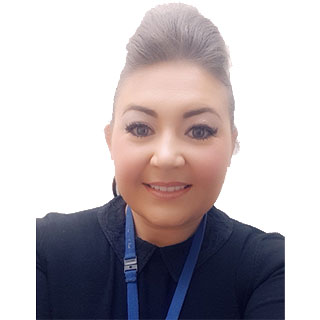Maternity and Neonatal Psychological Interventions Service (MNPI)
About the Service
The Maternity and Neonatal Psychological Interventions Service was established in 2021. It is our mission to provide a service that supports well-being of women, their infants, partners and families in Maternity and Neonatal Settings in Lanarkshire.
The service provides expertise from Clinical Psychologists, an Advanced Specialist Midwife and a Mental Health Practitioner. We use evidence-based approaches to understand and help when people experience difficult thoughts or feelings that are affecting their wellbeing and making it harder to do the things that they need or want to do.
Our Team

Dr Elaine Carr, Consultant Clinical Psychologist and MNPI Service Lead

Dr Emma Ross, Clinical Psychologist and Lead for Psychology in the Neonatal Unit

Dr Ciara Gill, Clinical Psychologist

Alana McLellan, Advanced Specialist Midwife

Joanna Herman-Waddell, Mental Health Practitioner and Therapeutic Counsellor

Laura McShane, MNPI Team Secretary
Problems we can help with
If you have problems affecting your maternity care such as:
- Distress related to procedures such as intimate examinations, blood tests or injections
- Fear of Pregnancy and Childbirth sometimes called “Tokophobia”
- If you have experienced a previous traumatic delivery or loss and it is causing you anxiety in a current pregnancy
- Depression in relation to a current pregnancy
- Anxiety in relation to a current pregnancy
If you have problems relating from pregnancy and birth complications or loss such as:
- neonatal death
- stillbirth
- loss of a pregnancy
- adjusting to unexpected news of additional needs and complications, for example it may have been identified that there is a problem with your baby’s development in the womb
- a traumatic delivery/ birth experience causing you distress (at least 6 weeks following the birth)
We are able to see people up to 12 months following birth or loss.
If your baby requires Neonatal Care and you would benefit from support with:
- A space to talk
- Anxiety
- Depression
- Loss and Adjustment
- Trauma
- Difficulties which are affecting the bond between you and your baby
We understand how stressful having a baby who needs neonatal care is for parents.
Where possible, we try to meet all parents of babies in the Neonatal Unit within the first few days of admission as part of routine care so we can tell you about the types of support that we can offer.
We may introduce ourselves when you are in the Unit with your baby or we may leave a courtesy card to say that we have popped by.
What about Fathers and Partners?
Fathers and Partners have a huge part to play in supporting the mental health of mothers, birthing people and their babies. Unfortunately, Fathers and Partners often report feeling left out of the maternity experience. We understand that the experiences of baby loss, adjustment to difficult news during pregnancy, traumatic birth experiences and having a baby or babies who require Neonatal Care affect all parents, and sometimes in different ways. For the parent who has not given birth, they may be left feeling helpless and left out of their partner’s or baby’s care. We also recognise that there can be additional pressures for fathers and partners to “keep it together” for their partner whilst juggling multiple family demands.
We offer a service for parents who have been affected by the Maternity or Neonatal Journey. This means that we can see people as part of a couple or individually. This service is also available to fathers and partners on an individual basis when they have experienced loss of a baby and when their baby is in the Neonatal Unit. We offer an assessment to understand peoples’ needs and we may make recommendations to other professionals within Maternity or Neonatal Services to help support the family. We may also recommend that Fathers and Partners contact Third Sector services or access self-help information if we think that is most helpful. We also offer psychological interventions.
Accessing the Service
Currently, we are only accepting self-referrals from parents who have babies on the Neonatal Unit.
For parents who have been affected by pregnancy/ birth complications or loss, traumatic birth experiences or parents where psychological difficulties directly affect a current pregnancy, referrals must be made by a health professional (such as a Midwife, Health Visitor or GP) who will complete a referral form. Please note we are only able to accept referrals for people booked to deliver within a Lanarkshire setting.
What does Psychological Intervention Involve?
There are many different types of intervention that we use depending on the needs of the individual or couple.
Initially we may work with Maternity and Neonatal staff to support parents and may make recommendations regarding their care.
We provide a supportive space for parents who are adjusting to their child’s admission to the Neonatal Service.
We may suggest that you look into self-help information or computerised Cognitive Behavioural Therapy to use in your own time and own pace.
There are Third Sector services which we might advise you to contact for specific support.
We may recommend that you access peer support from someone who has gone through a similar experience to your own previously.
We also offer formal psychological interventions, and we will talk to you more about types of therapy available. We tailor therapy to meet the needs of individuals and couples. We also plan to offer Groups to support you to learn additional ways of coping with difficulties.
The following video reflects the MNPI pathway designed to help women, their infants and families know what specialist care is available in Scotland: What are the Maternity and Neonatal Psychological Interventions Teams? How can they help me and my family?
For more information regarding the different specialist perinatal and infant mental health care services available in Scotland, please go to the Perinatal Mental Health Network Scotland website.
Frequently Asked Questions
- Why would I need psychological support?
- Is this something I have to do?
- Will this help my baby?
- Will I need to talk about the past?
- Where will my appointments be?
- Can I bring someone with me to the appointment?
- Confidentiality/ Who else will know I am seeing a psychological therapist?
- What if I can’t make one of my appointments?
Why would I need psychological support?
Difficulties Affecting Current Pregnancy
When people experience anxiety (including phobias), low mood or problems relating to previous traumatic experiences during pregnancy or birth, this can have a significantly problematic impact on their antenatal care, their health and the health of their baby. We want to be able to help support your wellbeing during pregnancy and your baby’s birth.
Baby Loss, Birth Complications and Trauma
Not everyone needs or wants psychological support following the loss of a baby or after experiencing birth complications or trauma however we know that many parents find it helpful to have a therapeutic space to speak about these experiences and to find solutions if there are ongoing difficulties.
If Your Baby is Currently Being Cared for by the Neonatal Service
Having a baby in the Neonatal Unit can be overwhelming at times. Research has shown that parents of babies in the Neonatal unit can struggle with anxiety, low mood, relationship difficulties and stress. Although these things may not happen to you, it can be helpful to have emotional support whilst your baby is with us.
Is this something I have to do?
Absolutely not. It is completely your choice if you would like to be referred to the MNPI Service.
Will this help my baby?
Research has shown that when parents are emotionally well, they feel better able to form healthy attachments with their babies. This has long term positive consequences for the baby as a healthy attachment has been linked to lower chances of children developing anxiety, stress, depression and behavioural issues in the future.
Will I need to talk about the past?
Sometimes people find it helpful to discuss what has happened in the past as it can help them to understand how they cope with things in the present, however this is not essential and if you don’t want to talk about the past, you do not have to.
Where will my appointments be?
Usually, you can be seen in a private room near Maternity Services or the Neonatal Unit at University Hospital Wishaw. Where possible, we can offer appointment in community clinics in North and South Lanarkshire. We are also able to offer appointments via the Near Me video call service, which means that as long as you are in a private area, with internet connection and where you won’t be disturbed, you can be seen this way too.
Can I bring someone with me to the appointment?
You can be seen individually or with your partner or other family members, depending on what you prefer. Your MNPI clinician will be able to think with you about whether it would be helpful to be seen alone in any following sessions.
Everyone’s situation is different and is assessed individually. The first meeting is an opportunity for you to discuss with the MNPI clinician what might be helpful for you, and your family, in managing any difficulties that you may be experiencing during your Maternity or Neonatal journey. This is likely to involve a detailed discussion about your present difficulties, including their effect on your daily life, how and when they arose, as well as considering aspects of your life before your baby was born.
The member of the team will work with you to reach an understanding of your problems, and will discuss with appropriate ways forward to reduce or resolve your difficulties.
Confidentiality/ Who else will know I am seeing a psychological therapist?
NHS Lanarkshire take care to ensure that your personal information is only accessible to authorised people. Our staff have a legal and contractual duty to keep personal health information secure, and confidential.
In order to find out more about current data protection legislation and how we process your information, please visit our Data Protection Notice web page or ask a member of staff for a copy of our Data Protection Notice.
What if I can’t make one of my appointments?
We are a small service and we want to make sure that we can help as many people who need us as possible. This is why we ask that you can do whatever you need in order to hold your appointments in-mind.
When you cannot attend your appointments, please contact us by telephone on 01698 366346 (extension 6346 if phoning from within University Hospital Wishaw) as soon as possible and we will be able to rearrange this with you.
If you are finding it difficult to regularly attend appointments, it will be important that we can think about this with you as we may be able to think about what might be getting in the way of this and what can be done to help you.
Further Information
- Other helpful resources and supports
- Online Courses – SilverCloud
- Enjoy your baby
- Solihull approach
- Mental health and well-being
- Baby loss
- Support in pregnancy and birth
- Menopause
- Breastfeeding support
- Neonatal services and support
- BAME parents
- Fathers and partners
- LGBTIQIA+ Parents
- General support
- Support apps
- Quick links
- Information for professionals
Other helpful resources and supports
- Samaritans
- A phone line for people experiencing any sort of mental health difficulty.
- Website: samaritans.org
- Phone: 116 123
- Email: jo@samaritans.org
- Breathing Space
- A phone line to support people over the age of 16 with low mood, anxiety or depression.
- Website: breathingspace.scot
- Phone: 0800 83 85 87
Online Courses
SilverCloud
Online Programmes to Learn Skills to Manage Everyday Issues that Affect your Emotional Health and Wellbeing.
SilverCloud is a new range of CBT courses that can help with a range of different problems, including physical health difficulties. These courses they teach you strategies to manage your emotions and find new solutions to problems.
Four SilverCloud courses can be accessed by self-referral, all you need to do is fill in the online form linked below. These courses are:
- Covid-19
Space from COVID-19 – this programme will help you to manage your mental health during the COVID-19 pandemic. - Resilience
Space for Resilience – this programme helps you achieve a sense of wellbeing and satisfaction. - Sleep
Space for Sleep – this programme will teach you the skills for overcoming your sleep difficulties. - Stress
Space from Stress – this programme will help enhance existing stress-busting strengths and skills, and build new ones.
Further information can be found on the Lanarkshire Mind Matters website.
In addition, eleven more SilverCloud courses can be accessed by referral from your GP or another healthcare professional. These are:
- Perinatal Care
Helping new and expectant parents cope with feelings of low mood and anxiety, and improve wellbeing. - Diabetes
Manage the symptoms of depression and anxiety associated with diabetes. - Health Anxiety
Learn skills to manage persistent and excessive worry around the status of your health. - Chronic Pain
Improve the symptoms of low mood and anxiety associated with chronic pain. - Social Anxiety
Overcome persistent fear of social situations and manage feelings of excessive self-consciousness. - Rheumatoid Arthritis
Improve symptoms of low mood and motivational factors associated with rheumatoid arthritis. - Coronary Heart Disease
Improve symptoms of low mood and anxiety associated with coronary heart disease. - Lung Conditions
Improve symptoms of low mood and anxiety associated with lung conditions. - Phobia
Learn techniques to manage the distress of phobias, and help overcome your fears. - Panic
Take steps to overcome the overwhelming feelings associated with panic, and panic attacks. - OCD
Understand the anxiety of persistent obsessions and compulsions, and learn ways to break the vicious circle.
Enjoy Your Baby (Living Life To The Full)
Enjoy Your Baby provides a free to access course with information to get you back on track and help you to really enjoy your time as a mother. Further information can be found on the Enjoy your baby section of the Living Life to the Full website.
Involves topics:
- Why do I feel like I do? – Find out key information about what makes you tick.
- Making positive changes – Plan activities that make you feel happier.
- Building closeness to your baby – Some tried and trusted methods to build important bonds.
- Looking at things differently – Learn how to change negative or stressful thinking.
Solihull Approach
The Solihull Approach to Parenting Support is a free online antenatal and postnatal course with three modules on understanding: Pregnancy, Labour, birth and Your Baby. Further information can be found on the In our place website.
- Understanding pregnancy, labour & birth
This antenatal guide is for everyone in the new arrival’s life who wants to build a strong, healthy relationship with the baby, focusing on preparation for the birth and the connection between parent and baby.
- Understanding your baby
Focusing on nurturing the parent and child relationship is for everyone around a new baby. This course gives you information about your baby’s brain development and your baby’s physical and emotional development. It shows how important your relationship with the baby is for the baby’s development. It looks at baby’s sleeping, feeding, crying, playing needs.
- Understanding Your Child
Nurturing and supporting relationships between children and their carers is important for all parents, grandparents and carers of children aged 0-18 years. On this course you will find out about your child’s brain development and how it affects behaviour. It will help you understand more about why your child behaves a certain way when they are angry, having a temper tantrum or when having trouble sleeping. You will also learn the importance of playing with your child in relation to their development.
To access any of these materials for free, enter code: TARTAN for South Lanarkshire or TARTAN for North Lanarkshire
Mental Health and Well-being
Local Services and Supports
- Lanarkshire Mind Matters
NHS Lanarkshire Adult Psychological Services site providing mental health information, advice and help. Further information can be found on the Lanarkshire Mind Matters website.
National Services and Supports
- Maternal Mental Health Scotland
Provides information to women affected by perinatal mental health issues, their partners, families and the general public. Further information can be found on the Maternal Mental Health Scotland website.
- MIND
A mental health charity which provides advice and support for people who are experiencing difficulties with their mental health.
Website: www.mind.org.uk
- PANDAS
Support for any parent who is experiencing a perinatal mental illness. Also provides support and information for family members.
Website: pandasfoundation.org.uk
Helpline: 0808 1961 776
Baby Loss
Local Services and Supports
- The Miscarriage Association
Supporting people affected by miscarriage, molar pregnancy or ectopic pregnancy. Further information can be found on the Miscarriage Association website.
- SANDS
Stillbirth and Neonatal Death charity, supporting anyone affected by the death of a baby. SANDS also offer a support group in Wishaw.
Website: sands.org.uk
Email: Helpline@sands.org.uk
Phone: 0808 164 3332
- Child Bereavement UK
Help for children, young people, parents, and families to rebuild their lives when a child grieves or when a child dies. Further information can be found on the Child Bereavement UK website.
- The Ectopic Pregnancy Trust
The Ectopic Pregnancy Trust raises awareness among the public and healthcare professionals and provides support for women and families. https://ectopic.org.uk/
- My Journey
Supporting acceptance of your unfulfilled wish for children. https://myjourney.pt/
Support in Pregnancy and Birth
- Tommy’s
Tommy’s provides support and information on pregnancy, including mental health problems. More information can be found on the Tommy’s website.
- Birth Trauma Association
Online support for women and their partners who have experienced Birth Trauma, Information for Professionals and Peer Support. Further information can be found on the Birth Trauma Association website.
- Twin Trust
The Twin Trust supporting parents of twins, triplets and more.
Website: twinstrust.org
- The National Childbirth Trust
A UK-wide charity to support parents including antenatal support, information and online networks. Further information can be found on the National Childbirth Trust website.
- Pregnant Then Screwed
Tackling Maternity Discrimination. Further information can be found on the Pregnant Then Screwed website.
- MASIC
Supporting Women with Injuries from Childbirth. Further information can be found on the MASIC website.
- MumSpace
MumSpace is Australia’s new one-stop website supporting the mental health and emotional wellbeing of pregnant women, new mums and their families. Further information can be found on the MumSpace website.
- DadSpace
Providing support for the emotional health of dads who are expecting or have a new baby. Further information can be found on the DadSpace website.
- Perinatal Positivity (in Film)
Perinatal Positivity uses the real voices and experiences of women and men who have had mental wellbeing difficulties around the time of pregnancy, childbirth and beyond. Further information can be found on the Perinatal Positivity website.
- Bumps (Best Use of Medicines in Pregnancy)
This website provides reliable, evidence-based, and accurate information about use of medicines in pregnancy, in the form of freely available patient information leaflets.
Menopause Support
- Balance Menopause
Inclusive support for the menopause. More information can be found on the Balance Menopause website.
- Menopause Support
Providing support and raising awareness for the menopause. Further information can be found on the Menopause Support website.
Breastfeeding Support
- NHS Lanarkshire Infant Feeding Team
NHS Lanarkshire’s Infant Feeding Team provide support to new parents with breastfeeding. More information can be found on the Infant Feeding section of the NHS Lanarkshire website.
- La Leche League UK
Friendly breastfeeding support from pregnancy onwards. More information can be found on the La Leche League website.
- The Association of Breastfeeding Mothers
The ABM currently offers a free course in breastfeeding preparation online. More information can be found on the AMB website.
Neonatal Services and Support
Local Services and Support
- BLISS
Offers a wide range of support for families of premature and sick babies.
Website: bliss.org.uk
Helpline: 0808 801 0322
Email: hello@bliss.org.uk
National Services and Support
- The Smallest Things
Provides information and blog stories of premature babies and their families. More information can be found on The Smallest Things website.
- PremDad
Premdad is a premature and parenthood blog written by a father. More information can be found on the Prem Dad website.
BAME Parents
Black Mum Magic Project
A Community of Women Celebrating Motherhood and Uplifting Each Other. Further information can be found on the Black Mum Magic Project section of the Improving Me website.
ACACIA Family Support
Pre and Postnatal Depression Support – Help for Black, Asian and Minority Ethnic Mums/Dads and People of Colour. Further information can be found on the BAME Mum and Dads section of the ACACIA website.
The Motherhood Group
The Motherhood Group is dedicated to share and support the black maternal experience through events, workshops, peer support, projects and advocacy. More information can be found on The Motherhood Group website.
Fathers and Partners
- Fathers Network Scotland
Network of Support for Mental Health and Wellbeing. Further information can be found on the Fathers Network Scotland website.
- Dads Rock
Improving Outcomes for Children by Inspiring Dads and Families. Further information can be found on the Dads rock website.
LGBTIQIA+ Parents
LGBTQIA Inclusive Pregnancy And Birth Care Tips: Inspired Birth Pro website
Having a Baby if you are LGBTQIA+: NHS UK website
Neonatal charity BLISS and LGBT organisation LGBT Mummies which supports people globally in their path to-wards motherhood and parenthood, have joined to improve the support for LGBTQIA+ parents in the Neonatal journey. More information can be found on the BLISS and LGBT Mummies website.
General support for children, young people and families
- Hands On Scotland
Providing general advice for parents and young people on a range of common difficulties for children and young people, including behavioural problems. More information can be found on the Hands on Scotland website.
- Children 1st
Children first operate ParentLine (08000 28 22 33) Scotland where you can call or email to speak to someone for advice and an opportunity to discuss concerns. More information can be found on the Children 1st website.
- Elament
All Lanarkshire libraries now have a healthy reading section with a wide range of mental health and well-being self-help leaflets, books, CDs, DVDs and web based support. There is a wide range of information for mental health and well-being at e-lament.
- NHS Lanarkshire CAMHS
This website has a section on self-help resources for anxiety, low mood, self-harm etc. And also helpful contact numbers for a range of difficulties including bereavement and parenting support. More information can be found on the CAMHS section of the NHS Lanarkshire website.
- Young Minds
A website with information about different mental health issues and common challenges facing young people. Also provides advice, toolkits and resources to support children and young people. More information can be found on the Young Minds website.
- The Miracle Foundation
The Miracle Foundation, based in Motherwell offers a range of services for children and young people, including individual counselling and groups, who have been affected by a bereavement. More information can be found on the Miracle Foundation website.
Apps
- Virtual Hope Box App
The VHB contains simple tools to help with coping, relaxation, distraction, and positive thinking. Further information can be found on the Virtual Hope Box section of the MyTherapy website.
- Head Space
An app supporting guided meditation. Further information can be found on the Head Space website.
- Integrated Family Delivered Neonatal Care (IFDC)
The IFDC app helps parents of premature babies take an active role in their new born baby’s treatment in an intensive care unit.
Using the app’s educational information, parents can better understand what’s happening to their baby, chart things like growth and feeding progress, and keep a diary of the key stages throughout the experience. Further information can be found on the NHS App library website.
- Baby Buddy
The Baby Buddy app guides you through your pregnancy and the first six months following your baby’s birth. It is designed to help you look after your baby’s mental and physical health, as well as your own, and give your baby the best start in life. Visit the Baby Buddy app section of the Best Beginnings website.
- Balance App
Knowledge and guidance to be certain for what’s right for your body during the perimenopause and menopause. Further information can be found on the Balance website.
- Pregnancy after Loss
The first app for parents who are pregnant after loss. Further information can be found on the Pregnancy after Loss website.
- SANDS Bereavement Support App
Support and information for bereaved parents and families, healthcare professionals and anyone affected by the death of a baby. Further information can be found on the SANDS website.
- Breastfeeding Support
3D technology, AI and peer support for families experiencing breastfeeding difficulties. Further information can be found on the LatchAid website.
Quick Links
NHS Lanarkshire – Maternity Services
NHS Lanarkshire – Neonatal Unit
Attend Anywhere via NEAR ME. To attend your appointment, visit the NEAR ME section of the NHS Lanarkshire website.
Information for Professionals
- Inspiring Scotland
A Service Directory for the Third Sector with information on services for Perinatal and Infant Mental Health
More information can be found on the Inspiring Scotland website.
- Understanding Autism in Perinatal Care
Information and guidance on caring for autistic women and birthing people in the perinatal period. Where possible, all resources on this Padlet have been produced by, or in consultation with, autistic or neurodivergent individuals. Further information can be found on the Padlet website.
Complaints, Compliments and Feedback
Your experience of the service is very important to us. We really want to hear when we are providing a helpful service and also where we need to improve things. If you would like to contact us regarding Compliments, Complaints or Feedback then please contact us on 01698 366346.
If you do not wish to approach us directly, then you can contact the Patient Affairs Team for University Hospital Wishaw via:
Patient Affairs Manager
University Hospital Wishaw
50 Netherton Street
Wishaw
ML2 0DP
Phone: 01698 366 558
Email: PatientAffairs.Wishaw@lanarkshire.scot.nhs.uk
You can also tell us about your experience of the service through:
- Completing the satisfaction questionnaire routinely provided at final appointments
- Visiting the “I want to give feedback” section of the NHS Lanarkshire website: www.nhslanarkshire.scot
- You can also leave feedback via www.nhslanarkshire.scot.nhs.uk/care-opinion


